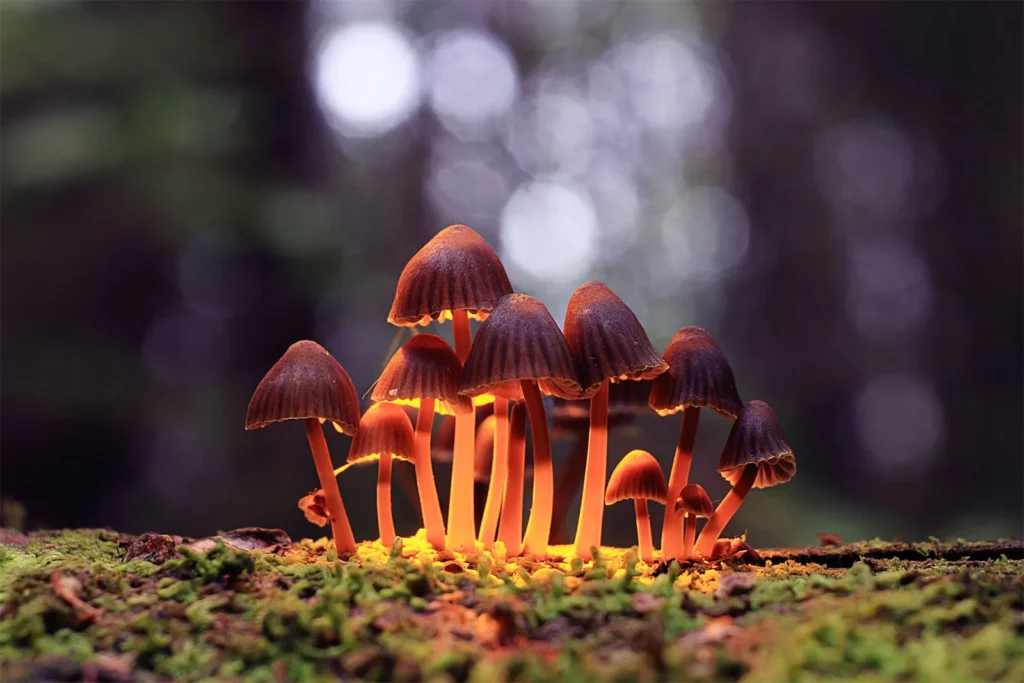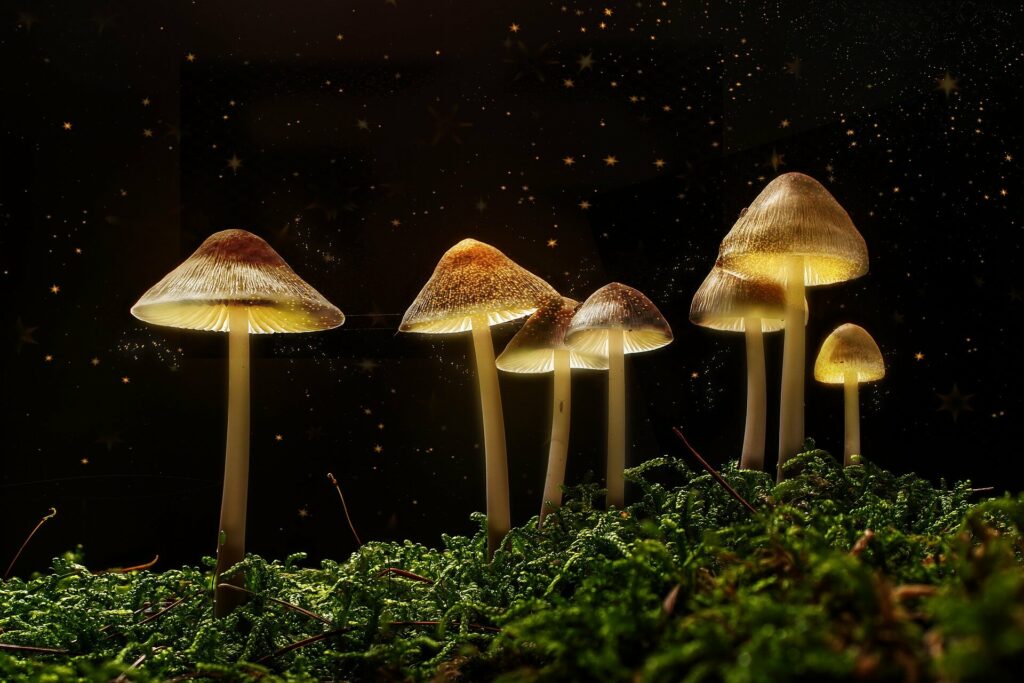In recent years, there has been a resurgence of interest in the therapeutic potential of psychedelics, particularly magic mushrooms, also known as psilocybin mushrooms. These intriguing fungi, long revered by indigenous cultures for their spiritual and healing properties, are now being studied extensively for their potential benefits of Magic Mushrooms in Medicine.
In this blog, we’ll delve into the emerging field of psychedelic therapy and explore the manifold ways in which magic mushrooms are proving to be a powerful tool for healing and transformation.
Magic Mushrooms: A Brief Overview

Magic mushrooms, also known as psychedelic mushrooms, are a type of fungi that contain mind-altering substances, particularly psilocybin and psilocin. They have a long history of use in traditional ceremonies, spiritual practices, and recreational settings. These mushrooms are renowned for their psychoactive effects, which can induce altered states of consciousness, vivid hallucinations, and profound introspection.
The active compounds, psilocybin and psilocin, interact with serotonin receptors in the brain, leading to altered perceptions, enhanced sensory experiences, and shifts in mood and cognition. The effects of magic mushrooms are highly variable and can vary depending on the individual, dosage, setting, and mindset.
In recent years, there has been a growing interest in exploring the therapeutic potential of magic mushrooms. Research indicates that psilocybin-assisted therapy shows promise in treating mental health conditions such as depression, anxiety, post-traumatic stress disorder (PTSD), and addiction.
Studies have shown that the experience of a guided psilocybin session, combined with therapy, can lead to significant and long-lasting improvements in mental well-being.
However, it is important to note that the use of magic mushrooms carries risks. In uncontrolled environments and without proper guidance, individuals may experience anxiety, confusion, or potentially harmful psychological reactions. Therefore, responsible and supervised use is crucial to ensure safety and maximize the potential benefits of these substances.
Legal status regarding magic mushrooms varies across countries and regions. Some places have decriminalized or legalized the use of psilocybin-containing mushrooms for medical or therapeutic purposes, while others consider them illegal substances.
As research continues and societal attitudes evolve, the exploration of magic mushrooms and their potential benefits in mental health and consciousness expansion remains a fascinating and ongoing topic of study.
Also Read: Exploring the Fascinating World of Psychedelic Fungi: A Journey into Magic Mushroom Cultivation
Benefits of Magic Mushrooms in Medicine
Magic mushrooms have been used for centuries in different cultures for spiritual and medicinal purposes. In recent years, scientific research has proven their potential benefits in treating mental health issues such as depression, anxiety, and addiction. Many experts believe that psychedelics like mushrooms can offer a way to heal mental disorders that have previously been resistant to conventional treatments.
The active ingredient in magic mushrooms, known as psilocybin, has shown promising results in clinical trials for treating various mental health conditions. In this article, we will explore the potential benefits of magic mushrooms in medicine and their growing role in the field of mental health.
Explore the Benefits of Magic Mushrooms in Medicine:
- Treating Depression and Anxiety: One of the most promising applications of magic mushrooms is in the treatment of depression and anxiety. Clinical trials have shown that psilocybin-assisted therapy can produce rapid and sustained reductions in depressive symptoms, often with just a single dose. Also, patients report feelings of connectedness, inner peace, and transcendence, leading to long-lasting improvements in mood and outlook on life.
- PTSD and Trauma Healing: For individuals struggling with post-traumatic stress disorder (PTSD) and trauma-related conditions, magic mushrooms offer hope for healing and recovery. Psilocybin therapy facilitates a deep dive into the subconscious, allowing patients to confront and process unresolved trauma in a safe and supportive setting. However, many participants experience significant reductions in PTSD symptoms and a newfound sense of empowerment and resilience.
- Addiction Treatment: Addiction is a complex and challenging condition that affects millions of people worldwide. Traditional treatment approaches often fall short in addressing the underlying psychological and emotional issues driving addictive behavior.
- End-of-Life Care: Perhaps one of the most profound applications of magic mushrooms is in end-of-life care. Research has shown that psilocybin therapy can help terminally ill patients come to terms with their mortality, alleviate existential distress, and cultivate a sense of peace and acceptance as they approach death.
The Future of Psychedelic Therapy
While the therapeutic potential of magic mushrooms is undeniable, there are still many questions and challenges to overcome. Regulatory barriers, stigma, and misconceptions surrounding psychedelics pose significant obstacles to widespread acceptance and adoption of psychedelic therapy. However, with mounting scientific evidence supporting their efficacy and safety, coupled with shifting cultural attitudes towards mental health and alternative treatments, the future looks promising for the integration of magic mushrooms into mainstream medicine.
Conclusion
In conclusion, magic mushrooms offer a glimmer of hope for individuals suffering from various mental health conditions and existential distress. As ongoing research continues to uncover their therapeutic potential, it’s clear that we are only scratching the surface of what these remarkable fungi have to offer in terms of healing, transformation, and spiritual growth. Additionally, with careful consideration and responsible implementation, magic mushrooms may soon revolutionize the field of medicine and pave the way for a new paradigm of holistic healing and wellness.

